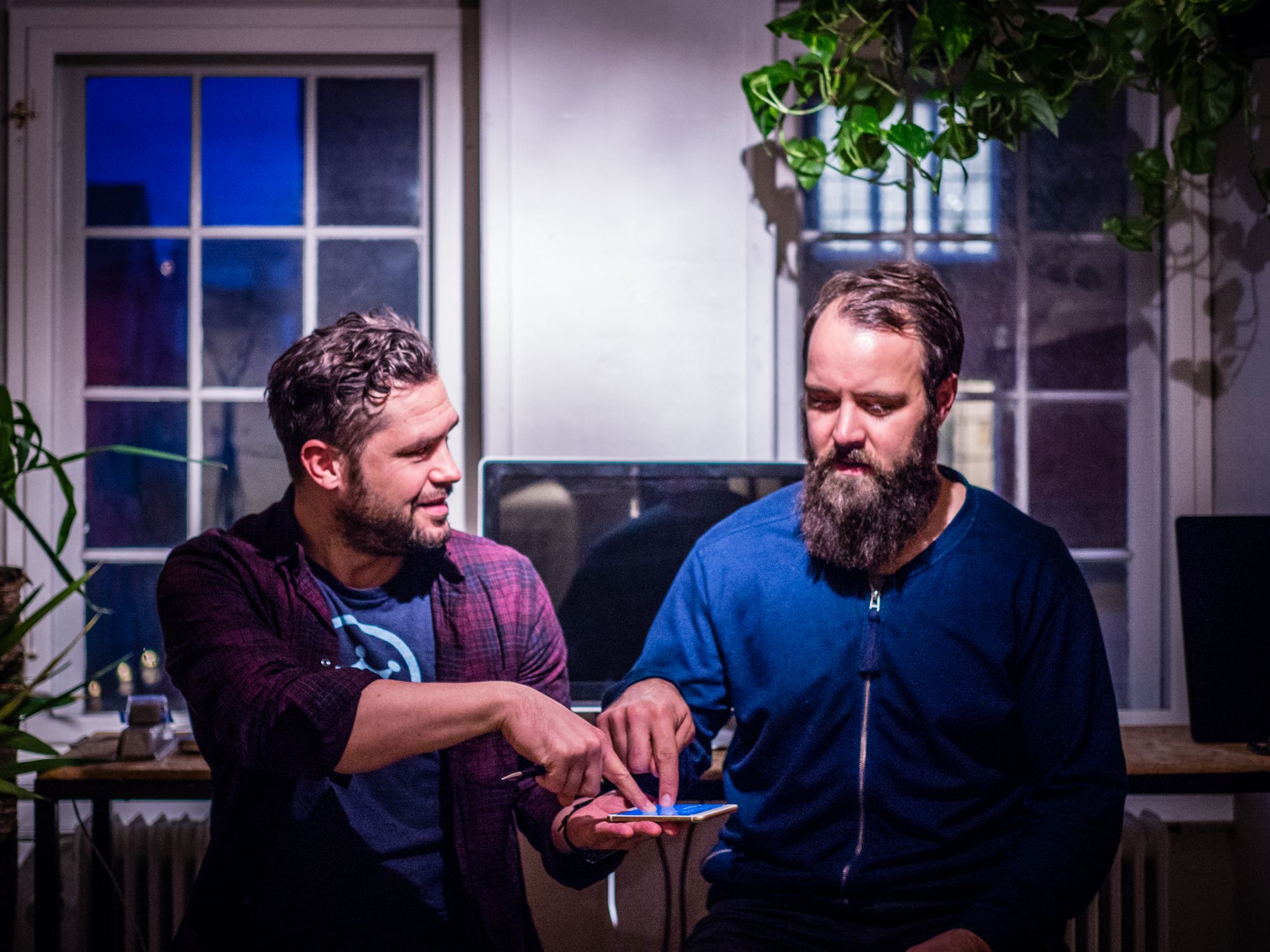Expat icebreakers in Copenhagen currently tend to occur in bars and restaurants, whilst queueing in International House or, occasionally, through the pages of our own newspaper.
Even though these chance events happen in the only two truly global languages – alcohol and bureaucracy – anyone new to Copenhagen and staying for longer than a weekend city break or business trip could do with something better.
Which is where Plane comes in. It’s a social icebreaker app designed for expats in Copenhagen to connect with new people around them. Whether you’ve been here for years or come from time to time, Plane’s CEO and co-founder, Tim Allison, describes the project as “breaking the ice in a better way”.
Launching imminently in Copenhagen and wider Scandinavia, the Weekly Post headed to Founders House to have a sneak peek and meet Allison and fellow co-founder Thomas Jacobsen, the two men in the cockpit.
Harness the moments
Users of Plane send out ‘signals’. They can be anything from an invite to coffee or the last-minute offer of an extra ticket to a concert, to something touching or surprising – one test member of Plane sent out a signal announcing the birth of his son.
These signals make up a ‘feed’ that you, and every member within range, can see for a certain length of time. It is still undecided how large the range will be or for how long the signals will be visible, but the co-owners are adamant that Plane will come down somewhere between the momentary photos of Snapchat and irreversible eternity of a Facebook post.
They aren’t competing with or emulating the established social networks, although Allison does admit that of the almost 10,000 people on either of Facebook’s most popular Copenhagen expat groups, they’d be happy if 2,000 started using Plane. The aim is “to let people harness the moments people have, when they have them. It’s for the users to control the noise level.”
Not a dating app!
Once someone posts a signal you like or identify with, you can send a response to it directly. This lets you access the ‘social card’ of the original sender, and only then can you swap personal details and learn more about each other. This is the crucial difference between Plane and practically everybody else – you have to engage with someone about their thoughts before you can fully share things.
“We’re not here to build a dating app,” insists Allison. “This is not swiping on someone’s face.”
The founders’ aim for the foreseeable future is to get people posting signals, sending responses and swapping social cards. This is an icebreaker, after all – from there, it’s up to you.
Strong signals
Talking to Allison, it’s clear Plane’s more intimate nature is deliberately designed. He focuses on “group”, “relate” and “human”, and is refreshingly candid about how early it is in its development curve, and how little they really know about how Plane will take shape. Of course there are parameters to follow, but if something makes it less awkward or artificial to meet new people, then it seems like they will take it onboard.
“We’re spending a lot of time right now talking to users, trying to understand exactly what they want from an app like Plane,” said Allison. “We’d love to tell you in three months exactly what a signal looks like.”
It’s a while since someone launching a product didn’t have a myriad of numbers and projections to bombard the world with. There are very few definites for the foreseeable future – other than confirming that they plan to expand Plane to London, New York and other selected cities in the first quarter of 2016.
The team also know they want to raise venture capital when the time is right next year to scale operations up, and they have already spoken to Nordic and London-based venture capitalists to finance the expansion.
Destination unknown
It’s clear both men passionately believe in Plane’s potential. And with early backing from leading Nordic angel investors, they aren’t the only ones who do. Despite their uncertainty and resistance to make solid predictions, there’s a quiet confidence in Plane and in Scandinavia.
Allison believes that Silicon Valley’s monopoly won’t last forever and that Copenhagen has all it needs to become a European competitor.
International people, asserts Allison, already have one thing in common: a sense of adventure. The entrepreneurs see their work as a learning process, a journey to constantly improve things, whilst “allowing Plane to become what it needs to become”.
“We’ll take it to its natural finish,” promises Allison.
“Right now, we’re just on the runway.”
Who’s behind it?
Tim Allison
– Plane’s creator – the idea came whilst working and commuting to Switzerland last year
– A veteran of the industry, the Brit has been an expat for four years and counting
– Previous app Cupple was a sharing network for partners, which he sold to Pair in early 2013
– Commended by TechCrunch and the Wall Street Journal, Cupple was made App of the Day on Gizmodo for Valentine’s Day
Thomas Jacobsen
– Plane’s technical man Thomas Jacobsen runs, a DTU graduate, the software side
– Finished Copenhagen’s Startupbootcamp 2013 as co-founder of social football-following app Kiggit
– Experience includes developing software for the Danish Ministry of Defence and tax authorities and co-founding digital platform agencies
– Has played American football for Denmark















